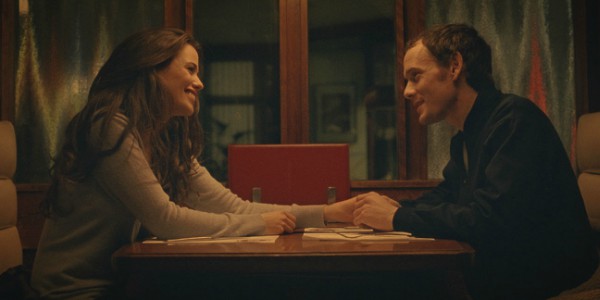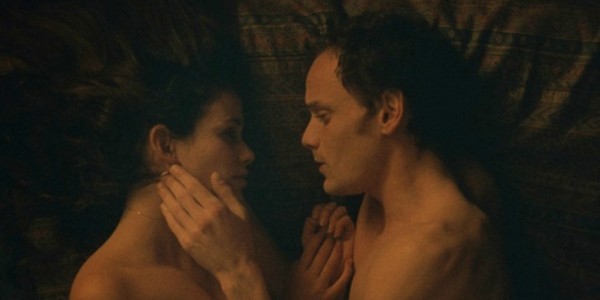PORTO: Visually Beautiful, Otherwise Empty

It took me a while to discover the wonderful world…
It’s his voice that I’ll miss the most. Gravelly and lived-in; a voice more befitting someone twice the age that he ever got to be. Yet that was always tempered by his youth and vulnerability. He always sounded a little bit sad, in a way that can be so appealing in an actor. He gave you the feeling that he’d understand, he’d been there too.
When Anton Yelchin died last year, at just twenty-seven years old, it didn’t cause as much of a stir as other early Hollywood deaths, like James Dean, or more recently Heath Ledger. But as we get closer to the release of his final film (Thoroughbreds, due out in the spring), it becomes ever clearer what a loss he will be.
He was a prolific presence in film and TV since the age of eleven. He played Chekhov in the most recent Green Room. He lent his voice (oh, that voice!) to Smurfs 2 and From Up On Poppy Hill.
The projects he picked weren’t always good, but he was always good in them; a sentiment true of his penultimate film, Porto.
Plot
Told in flashback, and a variety of film formats and aspect ratios, Porto is the story of American Jake (Anton Yelchin), and French Mati (Lucie Lucas), who meet at an archaeological dig in Porto and proceed to have an intense and steamy one-night stand. The next morning, one of them regrets their decision, and the other considers it the beginning of a beautiful relationship. For both of them however, that heated night has life-long resonance.

Filmic Beauty and Filmic Failure
Porto looks gorgeous. Writer/director Gabe Klinger and his cinematographer, Wyatt Garfield, find a romantic beauty on the streets of the Porto that Hollywood generally reserves for Paris. The archaeological dig on a foggy hillside, and the numerous shots of the city at night, are shot with admirable assurance for a first time narrative filmmaker. This visual splendour is enhanced by Klinger‘s decision to shoot on three different types of film stock; 8mm, 16mm and 35mm.
Whilst the use of different film stock is an asset, in other areas, the director’s constant formal experimentation harms the movie. Flashbacks and the fall-out from that fateful night are differentiated by aspect ratio. When the ex-lovers are alone, living their separate lives after their one-night stand, the movie takes on the boxy Academy ratio, 1.37:1. When they are together the screen extends out into the more expansive 2.35:1 .
It’s not hard to see why Klinger made this decision. When we are in Academy ratio, it certainly highlights the loneliness of these characters. With so little screen space, Jake and Mati individually fill the frame; there is no room for anyone else. And as such, you feel a definite relief when the movie switches back to the wider image.

Used sparingly, aspect ratio changes can be an effective tool. Xavier Dolan deploys only a few in Mommy, yet each one is rich with emotion. And Wes Anderson‘s The Grand Budapest Hotel uses the changes to make sure the viewer always knows where they are over three different time periods.
In Porto though, these changes are more confounding than helpful. Switching rapidly back and forth in the first chapter of the movie, it’s hard to tell whether the 1.37:1 scenes are taking place before or after the one-night stand. These switches happen so quickly that they are distracting; it’s almost impossible to concentrate on the events of the narrative when the frame changes so regularly, without warning. Each time it happens, you are taken out of the movie. Whilst the different film stocks are sumptuous, the different aspect ratios are maddening.
It’s Just A One-Night Stand!
The other major problem with Porto is that Klinger and co-writer Larry Gross insist on us finding deep meaning in a one-night stand, without giving either participant convincing dialogue, or a believable personality.
The film is bookended by starry-eyed exchanges between Jake and Mati that are often cringeworthy. Twice we hear Jake declare about his new and ill-fated relationship, “It doesn’t feel like a matter of choice!”, as if the stars themselves have aligned to bring together these two underwritten people for a single night of lovemaking. Repeatedly during an interminable sex scene they ask, “What is happening?”, as if they genuinely have no control over their bodies; they are just vessels for some great force that needs them to copulate. The intensity and earnestness with which the one-night stand is approached is just embarrassing.

It would all have been easier to buy if Klinger had put as much thought into his characters as he evidently did the film’s over-complex style. Because the fault doesn’t lie with the actors. Though Yelchin‘s character is often reprehensible (the way he clings to Mati like she’s his possession and then goes on to hit her is deeply troubling and never condemned), he portrays him with a palpable inner void, and an an insatiable hunger to fill it. He’s great, but he can’t overcome the screenplay.
Neither can Lucie Lucas, who may have more backstory to work with, but is still trapped by the wish-fulfilment Mati was obviously created from. She’s the archetypal mysterious Frenchwoman; absurdly beautiful, enigmatic, passionate and worldly. In the movie’s future scenes, we see her marriage has failed because she was so hung-up on this slovenly jealous drifter. Oh, if only she’d stayed with him! Her life would have been so much happier! Give me a break…
If either of these people seemed real, if they were given dialogue that didn’t sound written by an angsty teenager, then maybe you could go along with Porto‘s attempt at portraying a brief but profound relationship driven by fate. As it is, it’s all just too ridiculous and over-wrought to take seriously.
Porto: In Conclusion
In Porto, Gabe Klinger asks us to find great profundity in a one-night stand between two thinly sketched characters. He wants us to connect to these people, but uses so many formal tricks that we’re too distracted to invest in them. It’s a lovely-looking film, and it’s hard to find fault in the performances, particularly Yelchin‘s. But between the awkward dialogue, needlessly complex form, and uninteresting story, Porto seems much longer than its seventy minutes.
Have you seen Porto? What did you think?
Porto is on limited release in the US from November 17th. For further release information, click here.
Does content like this matter to you?
Become a Member and support film journalism. Unlock access to all of Film Inquiry`s great articles. Join a community of like-minded readers who are passionate about cinema - get access to our private members Network, give back to independent filmmakers, and more.
It took me a while to discover the wonderful world of cinema, but once I did, everything just fell into place.












